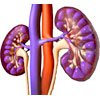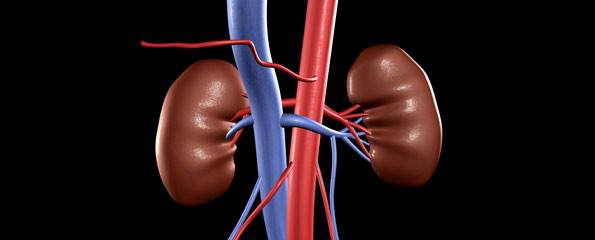Researchers draw link between kidney stones and kidney failure
People who have had kidney stones are twice as likely to need dialysis or a kidney transplant later in life, demonstrates recently published findings by medical researchers at the University of Alberta. Their article was recently published in the British Medical Journal.
Faculty of Medicine & Dentistry researchers Todd Alexander and Marcello Tonelli tracked data of more than three million Albertans over an 11-year period from 1997 to 2009. They discovered those with a history of kidney stones were twice as likely to have serious kidney problems later in life when compared to people who had never suffered from kidney stones. And women under the age of 50 who had a history of kidney stones were four times as likely to later develop kidney failure. Although the actual number of those who developed kidney failure was small, the link to having a history of kidney stones was noteworthy.
“I think what these results tell me, is that we should be screening those with a history of kidney stones for risk factors for the development of kidney disease,” says Alexander, the study’s first author and a practising pediatric nephrologist.
“I am not surprised by these findings because when you are passing a stone through a kidney, there is definitely the potential for permanent damage.”
Based on their findings, between five and seven per cent of Albertans will develop a kidney stone in their lifetime, says Alexander. The data is more alarming in the United States where 10 to 11 per cent of the population develops kidney stones. Half of those who get kidney stones will have a reoccurrence – anywhere from one to several more episodes.
“It’s important to note that the vast majority of people with kidney stones won’t develop permanent kidney damage,” adds Tonelli. “But a few will, and that’s why it’s important for people with stones to get proper follow-up care – to reduce their risk of another stone, and to detect kidney damage if it has occurred.”
People could try to decrease the likelihood of the development of kidney stones by decreasing their sodium intake, drinking more water and, if needed, taking certain medication. It has been previously observed that those who develop kidney stones have kidneys that don’t function at optimal levels, which is a factor in the whole issue.
(Source: University of Alberta (U of A): British Medical Journal)
More information
 | For more information on kidney cancer, including types and treatment, see Kidney Cancer . |
Dates
Tags
Created by:

 Login
Login














